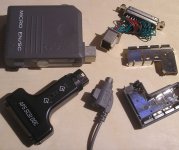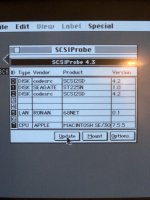yes, right, the connector exists, I got this
https://www.ebay.com/i/273425140933?chn=ps
I did not know about that, nice ! I wonder if designing one would be worth it ?
Pros :
- fast to design
- cheaper (especially because the one you suggest does not cheap to EU)
If I can't find one to buy on ebay I'll do this little project I think

I managed to loose a detailed post yet again!

At any rate this might help you get off to a start with your PowerBook case project.

Had a hunch and tore apart one of my L-shaped adapters, it uses a wire terminated part similar to or identical to the part ASANTE used. Straight up buying one of the cheapo adapters to cannibalize would likely be less expensive than the HD30 part you didn't find at DigiKey. I'd be very surprised if you can't find those or similar adapters on Ebay/Europe?
Came up with several suggestions for your PB housing. If interested, search the Ports_Pinouts.PDF and I'll elaborate here, the
Gamba2 link is dead. Alternately you can start a dedicated thread in hacks about a case for your board. I can post my research findings there and you can enlist someone from the 3D-printed objects gang to run with it so you can concentrate on board development here. Maybe Cory could move related posts from the beginnings of the PB application tangent to the new topic for you? That would keep them in context and do a bit of cleanup here?
Can you export a DXF or other CAD file of your board, or an object oriented PostScript file from your board design package? Is there a Gerber to CAD file translation utility available? As a starter from my end, the termination wires might be long enough to be soldered into the inboard thruholes for the top half of your duplex DB-25 connector? Looks iffy, could you post a top view of your board?
p.s. note the ridge/slot/hole implementation of the APS housing. You can also just see that the upper portion is a triangular filleted interface on one side as opposed to being a squared off inset on both sides as on the cheapo part, much more like the custom Apple connector. More pics to come at some point.
So I guess designing a cheap (< $10) HD30 to DB25 could be a good idea






